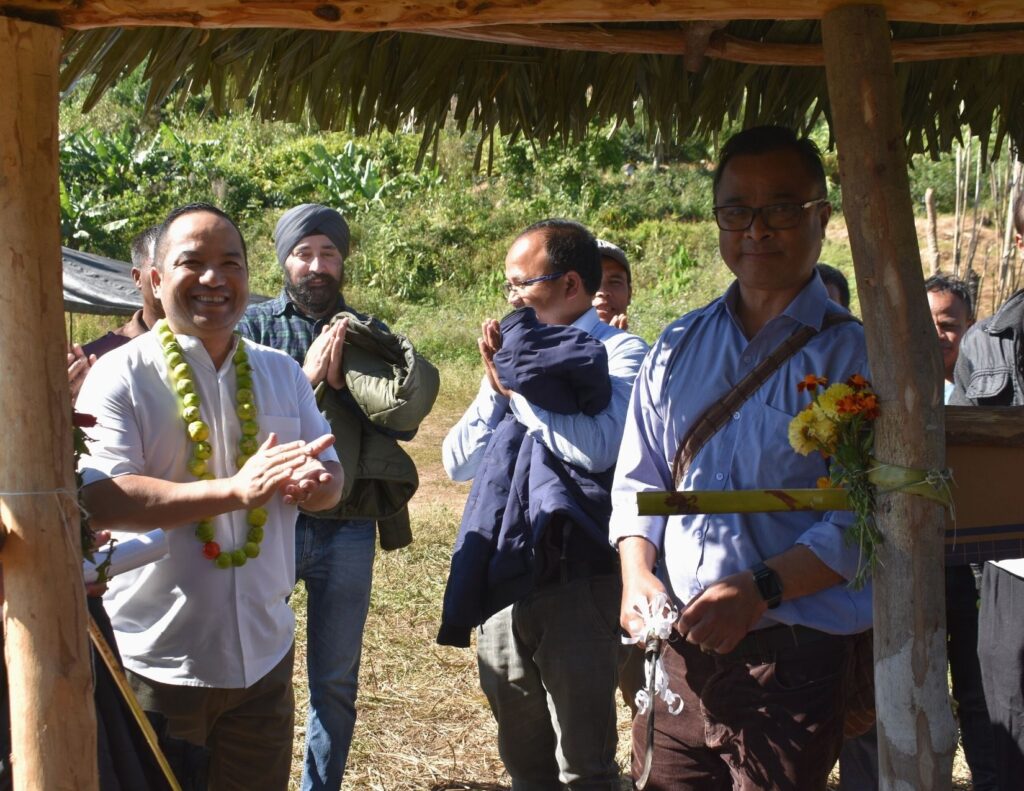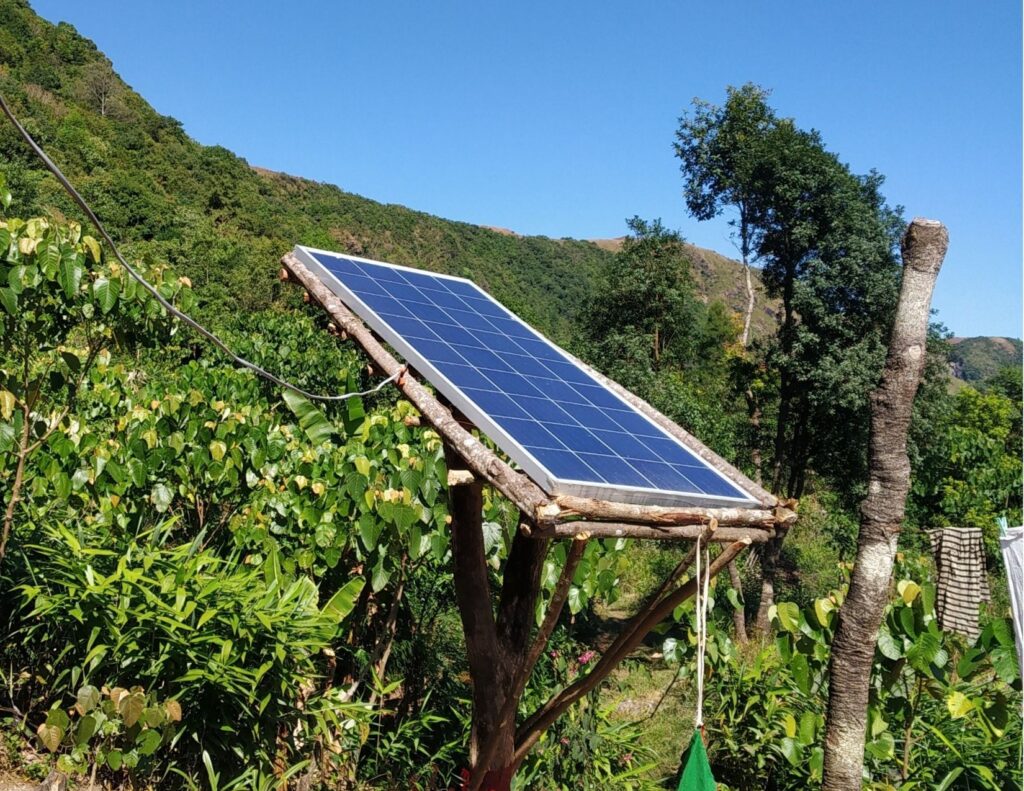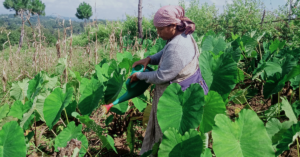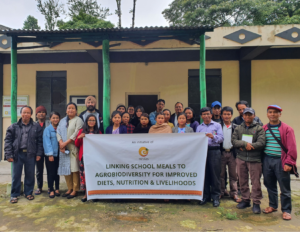The “No One Shall Be Left Behind” initiative funded by the REC has been towards the preservation of indigenous food practices and traditions in 130 partner communities. In this endeavor, innovations to help further the livelihoods and economy of the partner communities have been undertaken by NESFAS and its partner organizations; SSC, SURE and NEN, during the project duration. The first initiative under the innovation component was the implementation of Himalayan Rocket Stoves at Community Halls and Mei-Ramew Cafes to cut down the excessive use of firewood as well as to provide an alternative and a better source of heat in community halls during winters.
Acknowledging the energy deficiency (in un-electrified areas) that affects a number of partner communities from Meghalaya, NESFAS conceptualized the “Development of simple renewal energy saving and generating innovations’ ‘ project. The project’s primary objective was to demonstrate the path to energy sufficiency in Community Halls, Seed banks and un-electrified villages for rural Meghalaya with a focus on Ri-Bhoi, East Khasi Hills and Jaintia Hills districts involving communities to promote the use of renewable energy.
The project was earmarked to bring the following interventions among some of the partner communities:
- Install RE-systems (Renewable energy) for decentralized energy generation in selected un-electrified community centres, ensuring energy-sufficiency with a provision of audio-visual setup for community gatherings. This will further help in facilitating electrified Children reading rooms in case of long hours of electricity load shedding.
- Electrify Mawpynthymmai village (No access to grid electricity) in Mawkynrew block of East Khasi Hills district through the solar home lighting project in selected 24 households. This will reduce dependency on kerosene and allow children to study longer into the night.
- Train community youths as rural technicians and create a network of rural technicians who will facilitate the spread of renewable technology energy services and awareness to remote areas of Meghalaya and Nagaland.
- Provide Solar-powered lighting facility and solar dryer in three selected food processing units and community seed banks set up by NESFAS. This will enhance productivity and facilitate the processing of food products. In Solar-powered dryers, a temperature range of 50-65 degrees is maintained through 24 hours which will further reduce the drying time as compared to open drying. Solar-powered LED lights will ensure a better working environment in the evening hours.
- Implement a Solar water pump in Laitumiong village, East Khasi Hills.
An assessment of the communities (electrified and un-electrified) was duly conducted by MS Rimika Dora Ranee. Concurrently, Ajay Sharma, Technical Consultant, NESFAS, assessed Mawpynthymmai village on the solar electrical power needed by the community and prepared a TOR, highlighting the aforementioned areas of intervention. A call for tender invitation from interested firms/companies was duly made with Global Himalayan Expedition (GHE) winning the tender and getting the work order for the project. The implementation of the project started on the 30th of September 2021 and was completed by 15th October 2021.

The initiative was officially inaugurated on the 8th of November 2021 at Mawpynthymmai village in the presence of Banteidor Lyngdoh, MLA Mawkynrew Block. Under the project, 7 community centres have been installed with 1kW AC mini grid system with one street light facility, 3 seeds banks have benefitted with DC mini grids, 24 households of Mawpynthymmai village of Mawkynrew Block installed with DC mini grids for individual households and six street lights in the village, 2 value addition units equipped with DC mini grid, street light and one solar dryer for Khweng unit, and a solar water pump with 1kW capacity to pump water from the source to the village has been implemented at Laitumiong village. Local youths were also given technical training to equip them with skills in solar power energy with an aim to create a group of local experts for the future clean and green energy program.
Bah Sephrin Nongrum, Headman, Umsawwar expressed his profound gratitude to NESFAS for the intervention. Umsawwar, a partly electrified community, faces constant power outage during monsoon and rainy seasons and the installation of solar energy provides them with a much more efficient and cleaner source of energy.

“Since the solar panels were installed, the community members have been benefitted. Bah Nongrum commented.
Sita Mary Nongrum, an ASHA and ALC member from Umsawwar also believes the project will not only “provide light to the household communities but also provide safety for the people residing in the village.”
Bah Khraw Borlang Wahlang, Adviser, Innovation and Community Empowerment, conveyed his pride and joy in taking the lead to implement the project and revels in the impact in livelihood the project would bring for the communities. Bah Khraw believes that all the works that have been implemented are working well in the community and that the people appreciate NESFAS’ interventions.
“Mawpynthymmai’s Headman said that NESFAS has given them light and now the community can see hope and future for their children because they can now read books even at night. Laitumiong community members said that this coming winter they will not have water scarcity anymore, thanks to the newly installed solar water pump”.
“Hearing these statements from the community people itself gives us a sense of joy and satisfaction.” He added.



